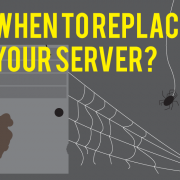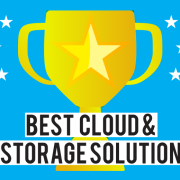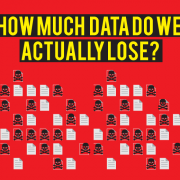KineticD Online Data Backup Expert Tips: The Different Types of Cloud Computing
There is no denying that cloud computing is in fact the way of the future when it comes to IT for both personal and business use. Small and large enterprises everywhere are increasingly turning to utilization of the cloud to get the most out of their data. However, regardless of all of this new found popularity, there are a lot of folks out there who might still be wondering, “What is cloud computing, anyway?”
Well, to start off, the expression “cloud computing” itself comes from visual abstractions that were drawn up in the past to illustrate the networks created by telephone systems, and later for computer networks within businesses and the Internet itself. All of these ended up resembling a cloud-like structure. As far as a simple definition is concerned, cloud computing is the process in which individuals and businesses alike can access applications and data that are stored on hard drives and servers that are housed remotely, allowing the individual or company to have equal access to this information from almost any location through the use of client and web-based interfaces. Users of cloud services are able to enjoy many advantages, including file sharing, file versioning, remote data access and automatic backups of their in-house computers and databases.

There are also many different types of clouds out there to choose from! One of the oldest types is called an “internal cloud”, which is the name for any cloud network that is created by and housed in the enterprise that is using it. ”Private clouds” are networks in which the administrator’s data is strictly personal and thus never shared with anyone, while public clouds are the type that allow for the sharing of data and collaboration in the cloud. Furthermore, a “virtual private cloud” is one that is contained and delivered over a public network, but is made virtually private through the use of special tools and data encryption. Finally, an “external cloud” refers to the type of cloud computing that is currently becoming more and more ‘in vogue’ with businesses, and would be defined as a public cloud operated and maintained over a private network by a third party. Nowadays, the third party in question is often an online data backup company.
Of course, the increase in the popularity of cloud computing is certainly easy to understand when you consider the multi-fold advantages that participating in cloud computing can bring about. Smaller businesses can use the cloud to make up for their lack of data storage facilities and processing power, while businesses of all sizes can enjoy the peace of mind, knowing that their backed up data is in safe hands. Not to mention save money that they would have otherwise have had to spend on creating their own separate storage services. Both of these major advantages are serving to change the entire nature of IT for business from the ground up, with the convenience and accessibility of cloud computing becoming more and more expected from businesses of almost all types and sizes.
We here at KineticD are very proud to be part of this revolution in IT, and we understand that many small to medium-sized businesses have a lot of tough choices to make when it comes to how they are going to implement their IT infrastructure in this increasingly cloud-based IT business environment. We believe that we do indeed have the solution; large enterprise-grade online backup and cloud computing services at a price that smaller businesses can afford and a scalable pricing system that can accommodate for a growing business’ often rapidly changing needs. After all, why shouldn’t your business have all the tools that current technologies have to offer? That is why we came up with KineticSecure and KineticExtend, our all-in-one online backup and data mobility suites that are specifically tailored with modern day small to mid-sized business in mind. And, to make sure that all businesses can have an equal chance to try out our services, we always extend a free 14-day trial to our potential customers, so there’s truly no excuse not to check out what the KineticD advantage is all about!








Leave a Reply
Want to join the discussion?Feel free to contribute!